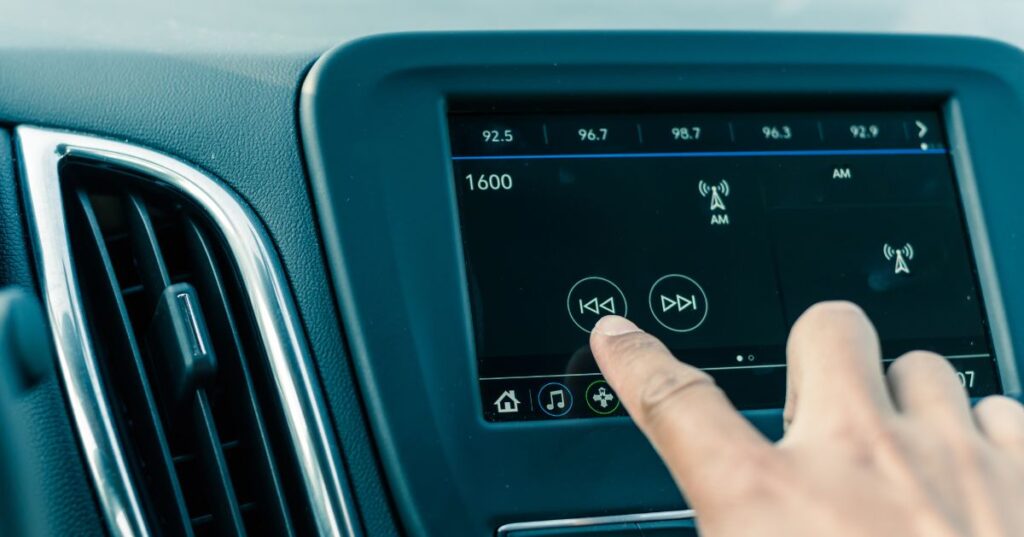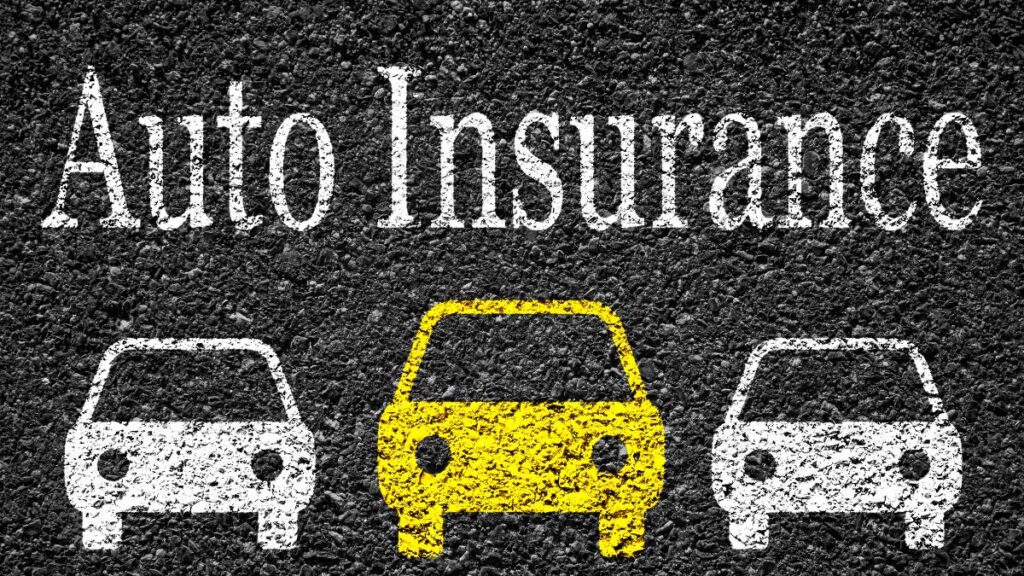Choosing the right auto insurance in Allentown, PA, is crucial for every driver. This beginner’s guide is designed to help you understand what to look for when selecting car insurance. It covers different types of insurance, the impact of deductibles on premiums, and why comparing quotes is important.
In the guide, we also advise not to choose based solely on price and to explore available discounts. With this information, you can make a smart choice that protects your car and fits your budget.
Contents
Auto Insurance Coverage in Allentown
Auto insurance coverage is a contract between the vehicle owner and the insurance company. The owner pays a premium, and in return, the insurance company provides financial protection against losses incurred as a result of traffic accidents or other covered events (VIU by Hub).
The price of your auto policy is based on many factors, such as car make, model, body type, engine size and the age of the vehicle, as well as the car’s sticker price, the cost to repair it, its overall safety record and the likelihood of theft. Insurers also take into account the age, driving record and sometimes the credit history of the driver.
The average annual cost of auto insurance in Allentown, Pennsylvania, is currently $1,794. This is higher than the national average (Allstate), and the rates can vary significantly between different insurance companies.
Importance of Auto Insurance
The main purpose of auto insurance is to provide financial protection against physical damage or bodily injury resulting from traffic collisions and against liability that could also arise from incidents in a vehicle. It is a crucial tool that protects your financial interests in case of accidents and can help keep your family and home financially secure (VIU by Hub).
Without adequate coverage, the financial implications of a serious accident (especially with injury) can be devastating. Hence, maintaining an appropriate level of coverage is not just a legal necessity but also a critical financial strategy.
It’s important for Allentown residents to understand their coverage options and make informed decisions about their auto insurance coverage. By exploring different aspects of auto insurance, you can better equip yourself to choose the right coverage for your needs.
Auto Insurance Companies in Allentown

Navigating auto insurance in Allentown may seem complex, but understanding your options is key to ensuring you have the right coverage. In this section, we’ll discuss the top auto insurance providers, the factors influencing insurance rates, and the importance of a good credit score.
Top Auto Insurance Providers
The best car insurance companies in Allentown, PA, include Travelers, Donegal, Erie, and USAA according to a report by Quartz Advisor. Each company provides different types of coverage, and their rates can vary, so it’s important to shop around to find the best fit for your needs.
For more specific information about Otosigna’s coverage, you can visit the Otosigna auto insurance page.
| Provider | Average Monthly Premium |
|---|---|
| Travelers | $79 |
| Donegal | $90 |
| Erie | $100 |
| USAA | $115 |
Figures courtesy of Quartz Advisor
Rate Determination Factors
Auto insurance rates in Allentown are influenced by several factors. These include your age, gender, driving record, credit history, and the make and model of your car. Other factors include the type and amount of coverage you choose, as well as your deductible (Source).
Allentown has a higher percentage of drivers with accidents and DUIs compared to the state average, which can lead to higher insurance rates. However, by maintaining a clean driving record and choosing the right coverage, you can keep your premiums to a minimum.
Remember, auto insurance rates can vary significantly between different insurance companies (Allstate), so it’s essential to compare quotes to ensure you’re getting the best coverage and price.
Importance of Credit Score
In Allentown, your credit history is a significant factor in determining car insurance rates. Insurers consider individuals with a good credit score to be less likely to file a claim, resulting in lower premiums.
If your credit score is lower than you’d like, consider taking steps to improve it, such as making timely payments and reducing your debt.
Remember, navigating auto insurance can be complex, but understanding the factors that influence your rates can help you find the best coverage for your needs.
Whether you’re looking for comprehensive, collision, or liability coverage, Otosigna offers a variety of options to suit your needs. Visit our otosigna auto insurance page for more information.
Mandatory Coverage in Pennsylvania
For residents of Allentown and the broader Pennsylvania state, understanding the mandatory auto insurance coverage laws is a critical step towards achieving comprehensive auto insurance coverage.
State-Required Coverage
In Pennsylvania, the minimum auto insurance coverage required by the state law is $15,000 for bodily injury liability per person, $30,000 for bodily injury liability per accident, and $5,000 for property damage liability. This insurance is designed to cover property damage or injuries caused to others in a crash (DMV PA, MoneyGeek).
| Coverage Type | Minimum Required Coverage |
|---|---|
| Bodily injury liability (per person) | $15,000 |
| Bodily injury liability (per accident) | $30,000 |
| Property damage liability | $5,000 |
As a driver in Allentown, it’s essential to have at least the minimum coverage levels to comply with Pennsylvania state law. However, it’s often advisable to consider purchasing more than the minimum requirement to enjoy more extensive protection.
For additional information on coverage options, consider Otosigna’s auto insurance policies.
Full Tort vs Limited Tort
Pennsylvania is a “choice no-fault” state. This means that drivers have the option to purchase either full tort or limited tort coverage.
With full tort coverage, drivers retain unrestricted rights to sue for all damages if they are injured in an accident. On the other hand, limited tort coverage is less expensive but restricts the driver’s right to sue for certain damages unless the injuries meet a certain threshold.
Understanding the differences between full tort and limited tort can help you make informed decisions when selecting your auto insurance coverage. Always remember that while having adequate insurance is essential, the ultimate goal should be to drive safely to prevent accidents in the first place.
Claiming Auto Insurance

Navigating the process of claiming auto insurance can be intimidating, especially if you’re doing it for the first time. However, with the right guidance and understanding, the process can be made more manageable.
Below we’ll discuss the steps to file a claim and the potential impact of claims on your insurance rates in Allentown.
Steps to File a Claim
If you’re insured with Otosigna, follow these steps to file your auto insurance claim:
- Report the Incident: The first step after any auto incident is to report it. Contact the local authorities to file a vehicle accident report if the accident involves another vehicle.
- Contact Your Insurance Provider: Notify your Otosigna auto insurance provider about the incident as soon as possible. You can do this either through their online claim portal or via their mobile app.
- Document the Incident: Gather and submit all the necessary documentation related to the incident. This could include photos of the damage, a copy of the police report, and any relevant medical reports if there were injuries.
- Get a Repair Estimate: After your claim is submitted and reviewed, Otosigna may require you to get a repair estimate from one of their approved car repair shops in Allentown.
- Vehicle Inspection: Depending on the extent of the damage, a vehicle inspection might be necessary.
- Claim Approval: Once all the necessary documentation is submitted and reviewed, and the repair estimate approved, Otosigna will begin the claim approval process.
Remember, each claim is unique and the process might differ slightly based on the specifics of the incident and the type of coverage you have, such as collision or liability insurance.
Impact of Claims on Rates
Filing an auto insurance claim can potentially impact your insurance premiums. According to Allstate, drivers with a clean driving record and no accidents or claims tend to have lower insurance premiums. However, if a claim is filed, it could result in an increase in your premium.
The amount of the increase can depend on several factors, including the nature of the claim, your driving history, and even your credit score, as per the Insurance Information Institute.
It’s also important to remember that rates can vary significantly between different insurance companies. Therefore, it’s advisable to compare quotes to ensure you’re getting the best coverage and price. Visit our article on the premium impact after a claim with Otosigna for more specific information.
While the process may seem daunting, understanding the steps to file a claim and the potential impact on your rates can make the experience less stressful.
Always remember to drive safely and responsibly to minimize the need for claims and to keep your auto insurance coverage in Allentown affordable.
Tips for Lowering Premiums

While essential, auto insurance coverage in Allentown can be a significant expense. However, there are ways to reduce these costs through safe driving discounts and age-based discounts.
Safe Driving Discounts
Insurance companies often reward safe drivers with discounts on their auto insurance premiums. Many insurers offer discounts for drivers who have not had any accidents or traffic violations for a certain period.
Additionally, some companies offer discount programs for drivers who agree to install a device in their vehicle that tracks their driving habits.
Another way to secure a safe driving discount is by completing a defensive driving course. These courses, offered by organizations such as AAA and AARP, educate drivers on advanced driving techniques and strategies to avoid accidents. Completion of these courses can result in up to a 10% reduction in premiums (AIG Insurance Blog).
Age-Based Discounts
Age is another factor that can influence auto insurance premiums. Senior drivers, typically those 55 and over, may be eligible for discounts not available to younger drivers.
For example, seniors can get a reduction in their auto insurance premium if they successfully complete an accident prevention course. These courses are available through local and state agencies, as well as through the AAA and AARP (Insurance Information Institute).
Furthermore, retirees or those who aren’t employed full time and, therefore, are driving less, may also be eligible for a car insurance discount.
Remember, maintaining a good credit score is also paramount as many insurance companies use a credit-based insurance score to determine eligibility and premium rates. A good credit score can result in lower insurance rates (Insurance Information Institute).
By taking advantage of these discounts and maintaining a safe driving record, drivers can significantly reduce their auto insurance premiums. However, it’s essential to ensure that your coverage meets your needs and provides adequate protection in the event of an accident.
For more information on auto insurance coverage in Allentown, visit our website.
Risks of Inadequate Coverage
Taking into consideration the increasing costs of medical care and vehicle repairs, it’s crucial to understand the risks associated with inadequate auto insurance coverage. Specifically, we’ll be discussing the risks of carrying just the minimum coverage and the benefits of opting for comprehensive coverage.
Risks of Minimum Coverage
Pennsylvania state law requires all drivers, including those in Allentown, to carry auto insurance coverage. The minimum car insurance coverage in Allentown costs about $47 per month or $563 per year.
While it might seem like a cost-effective option, carrying only the minimum required coverage can lead to significant financial strain in the event of a serious accident.
With minimum coverage, the policy will only cover certain damages up to the policy limits, leaving you to pay for any costs exceeding that limit out-of-pocket.
It’s important to note that this coverage is often insufficient to cover the medical costs and property damage expenses that can result from a major collision.
Furthermore, minimum coverage typically doesn’t cover damages to your own vehicle if you’re found liable for the accident or in case of incidents like theft or vandalism. This could lead to high out-of-pocket expenses for car repairs or replacements.
Benefits of Comprehensive Coverage
Contrarily, comprehensive coverage, while more expensive, offers a more robust protection. Full coverage car insurance in Allentown costs about $187 per month or $2,240 per year on average (Quartz Advisor).
Despite the higher premiums, it’s recommended for drivers in Allentown to consider purchasing additional coverage beyond the state minimum requirements to protect themselves financially in the event of an accident (The Zebra).
Comprehensive coverage includes collision coverage, which pays for damages to your own vehicle in an accident, and comprehensive insurance, which covers non-collision incidents like theft, vandalism, and natural disasters.
It provides peace of mind knowing that you’re protected against a wide array of potential incidents. Additionally, many comprehensive plans offer extras like roadside assistance and rental car coverage, adding more value to your policy.
The choice between minimum and comprehensive coverage ultimately depends on your individual circumstances, including your risk tolerance, budget, and the value of your vehicle. However, it’s essential to fully understand the potential financial consequences of carrying inadequate coverage.
For more advice on selecting the right auto insurance coverage in Allentown, we recommend consulting with an insurance professional or seeking legal advice.
Conclusion
So, that was all you need to know about auto insurance coverage in Allentown. We provided you with the essential information to choose the right insurance for your vehicle. By considering factors like the type of car, deductible impacts, coverage types, and shopping around, you can make a well-informed decision.
Remember, the cheapest option isn’t always the best. Choosing the right insurance protects your car and saves money in the long run. Always explore discounts and choose a policy that offers the coverage you need at a price that fits your budget.







